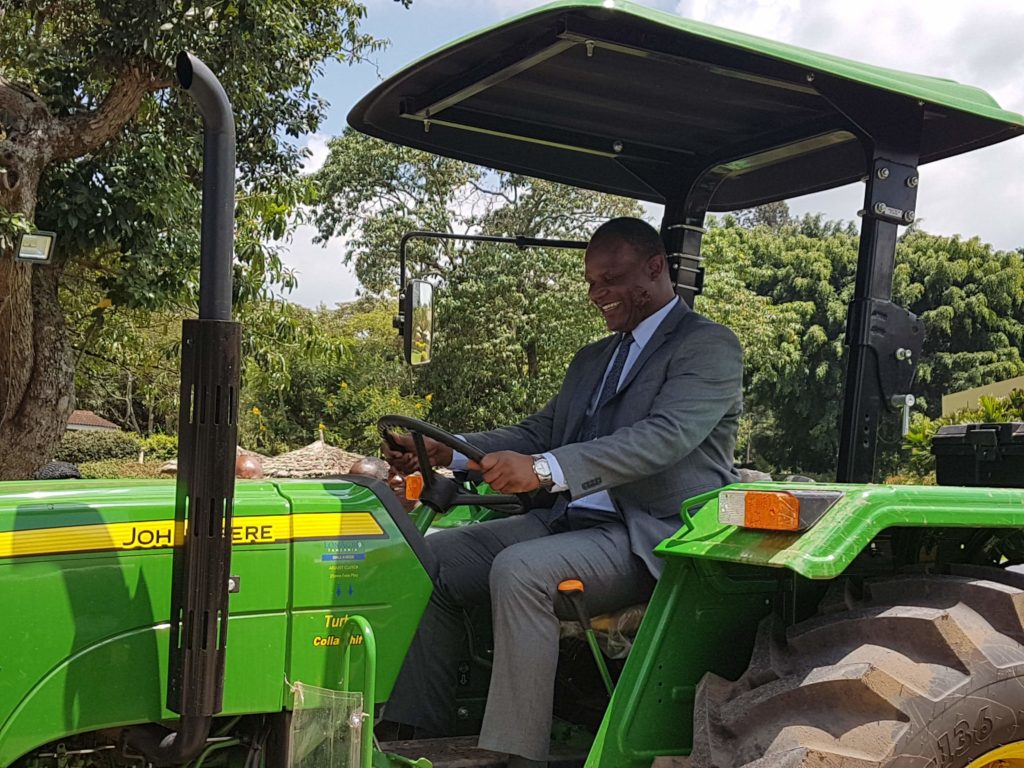Tanzanian Minister for Agriculture calls for more public-private collaboration
Greater yields, higher incomes, and improved livelihoods – these will be the results farmers in seven countries across Africa could get with the launch of the Accelerated Varietal Improvement and Seed Delivery of Legumes and Cereals in Africa (AVISA) project. Focusing on five crops – groundnut, common bean, cowpea, sorghum and millet, AVISA aims to increase productivity, profitability, resilience, and marketability of nutritious grain legume and cereal crops across Burkina Faso, Ghana, Mali, Nigeria, Tanzania, Ethiopia, and Uganda.
Modernization of crop breeding, strong market orientation, gender responsiveness and nutrition traits, besides public-private partnership focus are some components that make the project unique.
Speaking at the launch, Hon. Japheth Hasunga, Minister for Agriculture, Tanzania, called this a timely initiative for farmers to gain high-quality seed of improved varieties of crops for better productivity, improved nutrition, and income opportunities. “Agriculture contributes to 29.1% of our GDP in Tanzania and approximately 70% of our population depends on agriculture for their livelihoods,” he said. Most dryland grain legumes and cereals have high nutritive properties.

Hon. Japheth Hasunga, Minister for Agriculture, Tanzania trying out one of the tractors that will mechanize Agriculture
“Pearl millet, extremely high in iron, zinc, and folate can reduce anemia, while legumes are high in calcium and protein, particularly important for growth and development. AVISA comes at a time when we have ambitious Sustainable Development Goals around food security and nutrition,” said the minister.
Funded by the Bill & Melinda Gates Foundation, the AVISA project consolidates gains made by earlier initiatives that the Foundation funded – Tropical Legumes, HOPE, and HarvestPlus. AVISA will be implemented by ICRISAT, International Institute of Tropical Agriculture (IITA) and International Center for Tropical Agriculture(CIAT). Important components include public-private partnerships, an active role for private seed companies and the National Agricultural Research System (NARS).
Dr. Jeff Ehlers, Program Officer, Gates Foundation, emphasized the importance of partnership: “This is a strong opportunity to learn from one another and grow together. The private sector approach in AVISA can mean much greater gains for farmers. Climate is shifting and new varieties bred in the new climate are needed to help smallholder farmers deal with the challenge.”
Dr. Geoffrey Mkamilo, Director General, Tanzania Agriculture Research Institute, said it was important to deliver and have an impact in the community. Dr. Adebisi Araba, Regional Director for Africa, CIAT, said “This project partnership can build solid food systems for Africa. Nutrition is a great challenge and the focus on five crops in AVISA is a perfect mix to address this.”
Dr. David Chikoye, Regional Director, IITA, asked why farmers were still using very old varieties. “Why is this still happening in spite of good genetic variability?” he asked, emphasizing on the need to focus on improved varieties from the nutrition and livelihood perspectives.
Dr. Peter Carberry, Director General, ICRISAT, said he was very proud and pleased to lead this initiative. “We are excited that this brings so many partners from the NARS, the CGIAR, and the private sector together. We are committed to supporting the success of the project – the dual goals of modernizing crop improvement as well as measuring on this for greater benefits”.
At the launch meeting on February 25, the logo of AVISA was unveiled symbolizing a healthier and prosperous Africa. Over 100 participants from across the world including representatives from the private sector, the national agricultural system, scientists, development workers, and government officials attended the meeting.
This press release was a joint effort by CIAT and ICRISAT.

